Words of Wisdom - Shastra
& Shastrakaras speak
For Books and shastra downloads see Main Index, under
Books:
Om Namo Bhagavate Vasudevaya
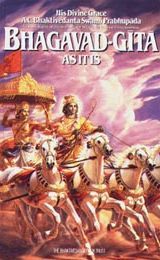

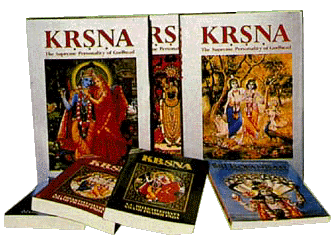
The Complete Works of Srila Prabhupada
All the books, the letters and conversations at your
fingertips
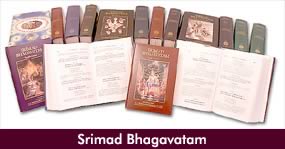
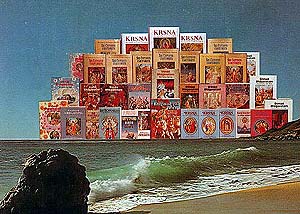
All Srila Prabhupada's books and more on one disk
http://www.vedabase.com




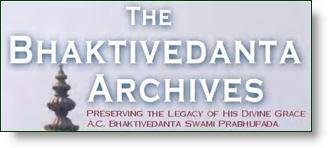
Srila Prabhupada's Audio lectures to listen to on-line:
http://www.hare-krishna.org/srila-prabhupada-lectures.htm
Listen to Srila A.C. Bhaktivedanta Swami Prabhupada on-line
- all 900 of his lectures are available HERE:
http://www.prabhupadavani.org/
Srimad Bhagavatam - the entire lecture series listen and
read along on-line - Narrated by Amala Bhakta dasa:
http://www.prabhupadavani.org/SB_index.html
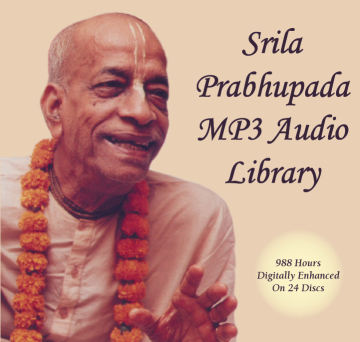
The new enhanced Prabhupada MP3 series
http://www.prabhupada.com/store/store.php?page=product.php&id=MP3AUDIOLIB

The Audio Srila Prabhupada Lilamrita
Please find enclosed details a being launched on Gaura Purnima day 2008.
It is a simple audio rendition of sections from "Prabhupada,
your ever well-wisher" by Satsvarupa dasa Goswami.
It was recorded here in the UK back in the mid '90's
by Bhagavat-Asraya prabhu (ACBSP) at my studio and I edited it into 8 short
instalments for inclusion on my weekly radio programme "Nectar of Devotion".
We had such a good response from listeners that it was
decided to add "The Audio Srila Prabhupada Lilamrita" to the Nectar of
Devotion website archive page.
In doing so I felt it might be nice to create a very simple,
seperate website for the Lilamrita.
The result is http://www.lilamrita.page.tl
It will be officially launched on Gaura Purnima day 2008
for the pleasure of Srila Prabhupada and all the Vaishnava's.
I hope this humble attempt will add to the growing appreciation
of Srila Prabhupada's remarkable achievements.
If other Krishna conscious radio stations would like
to broadcast this Lilamrita series they can contact me at devotion@nusoundradio.com
and I can send them mp3 copies.

Srila Prabhupada Vyasa-puja book 2007
http://www.krishna.com/node/1048
Vyasa-puja is an annual celebration by the devotees of Lord Krishna
to offer homage to their guru, or spiritual teacher.
There are two versions of the Vyasa Puja Book based on the speed of
your internet connection.
If you are unable to open the file, download Acrobat Reader.
High speed connections, with pictures.
Vyasa-puja
Book 2007 [PDF/ZIP, 2.11MB]
Low speed connections, no pictures.
Vyasa-puja
Book 2007 (no pictures) [PDF/ZIP, 2.11MB]








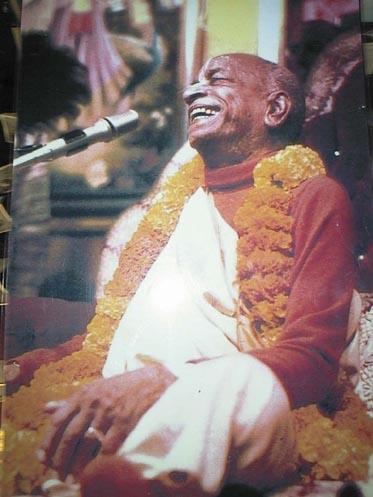
Visit "Prabhupada Connect" for all manner of Prabhupad
Nectar:
http://www.prabhupadaconnect.com/Index.html
Srila Prabhupada's Final Lesson Video - Downloadable and
viewing on-line
http://users.iskconludhiana.com/images/thumbnails.php?album=21
All pictures of Srila Prabhupad (19, 494)
http://www.iskconmedia.com/photos/Prabhupada_All_Photos/


All Srila Prabhupada's original books
available for sale here.

Download all the Hare Krsna teachings which includes
all Vaisnava and
Vedic concepts by visiting one of the sites listed at
the following address.
http://www.geocities.com/suci123/bookdownloadsites1.html
The Bhaktivedanta Book Trust
Srila Prabhupad Memorial Library
http://www.krishna.com/main.php?id=33


33 Books Online Including Srimad Bhagavatam!
http://www.geocities.com/freeprabhupadabooks
The compressed "self extracting" file mentioned is now currently
available for download
http://www.krsnaconsciousness.org/Gauranga/Folio/BhaktivedantaVedabase_DOS.exe

Download or Listen to Prabhupad Bhajans HERE:
http://www.prabhupadavani.org/web/text/Bhajans.html


On-line 1972 McMillan edition - Bhagavad Gita As It Is:
http://www.asitis.com/

Bhagavad Gita AS IT IS on-line through the Tirupathi
Balaji site:
http://www.bhagavad-gita.us/

Bhagavad Gita Study guide on-line book:
http://chantandbehappy.com/gita/studyguide/StudyGuide-main.htm
Bhagavad Gita Study guides by numerous Iskcon devotees
- FREE downloads:
http://www.veda.harekrsna.cz/library/#3

All the Scriptures you'd ever need 4 FREE
http://www.hknet.org.nz/index-books.htm
http://www.hknet.org.nz/DDB.htm
http://www.hknet.org.nz/DDB2.html
last updated 4th August 2003


Srimad Bhagavad Gita AS
IT IS
Bhagavad Gita: Chapter
7 - Knowledge of the Absolute
TEXT 2
jnanam te 'ham sa-vijnanam
idam vaksyamy asesatah
yaj jnatva neha bhuyo 'nyaj
jnatavyam avasisyate
WORD FOR WORD
jnanam--phenomenal knowledge; te--unto you; aham--I; sa--with;
vijnanam--numinous knowledge; idam--this; vaksyami--shall explain; asesatah--in
full; yat--which; jnatva--knowing; na--not; iha--in this world; bhuyah--further;
anyat--anything more; jnatavyam--knowable; avasisyate--remains.
TRANSLATION
I shall now declare unto you in full this knowledge, both
phenomenal and numinous. This being known, nothing further shall remain
for you to know.
PURPORT by HDG Srila A.C. Bhaktivedanta Swami Prabhupad:
Complete knowledge includes knowledge of the phenomenal
world, the spirit behind it, and the source of both of them. This is transcendental
knowledge. The Lord wants to explain the above-mentioned system of knowledge
because Arjuna is Krsna's confidential devotee and friend. In the beginning
of the Fourth Chapter this explanation was given by the Lord, and it is
again confirmed here: complete knowledge can be achieved only by the devotee
of the Lord in disciplic succession directly from the Lord. Therefore one
should be intelligent enough to know the source of all knowledge, who is
the cause of all causes and the only object for meditation in all types
of yoga practice. When the cause of all causes becomes known, then everything
knowable becomes known, and nothing remains unknown. The Vedas (Mundaka
Upanisad 1.3) say, kasmin bhagavo vijnate sarvam idam vijnatam bhavati.
His Divine Grace A.C. Bhaktivedanta Swami Prabhupada
Copyright 1983 The Bhaktivedanta Book Trust International. Used with
permission.

Bhagavad Gita As It Is - http://www.asitis.com/
Bhaktivedanta Vedabase - Bhagavad Gita on-line http://bhagavadgitaasitis.com/
Bhaktivedanta VedaBase: Bhagavad-gita As It Is http://vedabase.net/bg/en
Bhagavad Gita Multi Media Web-version http://chantandbehappy.com/gita/
Listen to Bhagavad Gita on line - http://www.Gitamrta.org
View our Bhagavad Gita Overview:
http://www.hknet.org.nz/BG.html
Archive: http://www.cs.rice.edu/~vivek/btg/archive/
Home Page: http://www.cs.rice.edu/~vivek/btg/
Join Bhagavad Gita eGroups HERE
mailto:bhagavad_gita-owner@egroups.com


Prabhupada Uvacha:
(here's some nectar, sometimes it comes in the form of Srutakirti prabhu's
diary, other times from Govinda dasi's diary, Hari Sauri prabhu's Transcendental
Diary, Bhurijan prabhu's book, or sometimes from a letter, or other related
source, but still nectar...)
Visnujana's cleaning mood
April, 1968
In his youthful enthusiasm Visnujana gets into
a cleaning mood one day. He has been told that cleaning Krsna's temple
is the same as cleaning your heart. Prabhupada had given the example that
the more you decorate the original, the more the reflection is automatically
decorated. The heart is the reflection of the original consciousness, Krsna,
and the more Krsna and His paraphernalia are decorated, the more this will
reflect in the heart, resulting in transcendental bliss. Happily cleaning
everything, Visnujana cleans the clay mrdanga with water. He also cleans
the Kartama-sayi Deity with water. The Deity had been painted in India,
with a water based paint, and now the paint starts to run. In despair,
he realizes he overdid it.
Saradiya devi dasi: Malati took the Deity home
and repainted Him with enamel. I remember bringing the Deity back to the
temple in a car and holding Him on my lap. I was completely in awe holding
Krsna.
Seeing Visnujana's cleaning mood, Upendra engages
him in painting the moldings surrounding the light fixtures in the center
of the ceiling. Enthusiastic to beautify the temple, Visnujana chants blissfully
as he paints.
Upendra: He was very intensely painting, but then
he'd start chanting, and he'd start painting off the border of the molding.
He chanted all the time. It seemed to me at the time, that he was always
chanting so intensely that he couldn't give his attention to anything else
he was doing. They had to stop him from driving. The devotees used to take
turns driving our vehicle, but when Visnujana drove he started chanting
to the distraction of his driving. So he wasn't allowed to drive.
Jayananda usually returns to the temple quite
late after driving his taxi all day. If he sees that no one has cleaned
the kitchen, he will just clean the kitchen himself, as well as carry out
the garbage. By doing it himself, Jayananda inspires others to do service.
He encourages Visnujana's youthful exuberance to beautify the temple. "This
is great, Prabhu. I want to help. Actually, you're such a good devotee.
I'm not much of a devotee myself."
"No, you're a very great devotee, Jayananda. You're
always..."
"No, no," Jayananda interrupts. "I don't have
any qualification. I just like to serve. But otherwise you're much more
sincere than I am. I've been here for so long and still I'm not surrendered.
Look at how you just joined, and you're very enthusiastic and surrendered."
Like everyone else in the temple, Visnujana learns
about the true qualities of a Vaisnava from this mood of Jayananda.
Visnujana feels great joy rendering devotional
service in the temple, knowing that God is personal. The devotees have
finally convinced him of that. But one day he comes across a verse in the
old brown Srimad-Bhagavatam he has purchased from Prabhupada. He is reading
the description of the universal form where it is written that this is
just for the neophyte devotees. (Srimad-Bhagavatam 1.3.30) Visnujana misinterprets
this, thinking that Prabhupada is stating, "Krsna is a person but it is
just for the neophytes."
Upendra: He was sitting with the Bhagavatam in
his lap at Frederick Street temple and he was crying. He was really upset
because he thought he had been fooled. He was convinced that God was personal,
then he read in Prabhupada's purport that the personal aspect of God is
only for the neophytes. But he had misread it because it was the universal
form that was for the neophytes. Anyway he was informed by Swamiji that,
"You misread. Krsna is eternally personal." So he regained his composure
and felt happy again. He had really been unhappy. He felt cheated.
- From the "Radha-Damodara Vilasa" by HG Vaiyasaki
dasa
To receive little snippets of nectar like this on a daily basis subscribe
HERE: or If you want to introduce anyone else in reading Srila Prabhupada
Nectars, please send their eMail addresses to mailto:krpamaya_gauranga@hotmail.com
Please Chant:
 Hare
Krishna Hare Krishna Krishna Krishna Hare Hare
Hare
Krishna Hare Krishna Krishna Krishna Hare Hare
 Hare
Rama Hare Rama Rama Rama Hare Hare
Hare
Rama Hare Rama Rama Rama Hare Hare
...................and be Happy

Listen to Srila Prabhupad on-line
....a different lecture, morning walk, conversation or
class daily.
"Breaking Our Karmic Chains"
Srimad-Bhagavatam 3.26.26
Bombay, January 3, 1975
Listen to the entire lecture on-line:
http://prabhupadaradio.com/M3U/Bhagavatam/m3u_II/SB390.m3u
Nitai: "This false ego is characterized as the doer, as
an instrument and as an effect. It is further characterized as serene,
active or dull according to how it is influenced by the modes of goodness,
passion and ignorance."
Prabhupada:
kartrtvam karanatvam ca
karyatvam ceti laksanam
santa-ghora-vimudhatvam
iti va syad ahankrteh
[SB 3.26.26]
So last night we discussed Sankarsana. Sankarsana, Pradyumna,
Aniruddha. Vasudeva, Sankarsana, Pradyumna, Aniruddha. Four expansion are
there for taking charge of four kinds of different activities. So this
false ego and the material world, "I am this body," they are also divided
into three, santa, ghora, and mudhatvam, according to the modes of material
nature. Santa means sober, serene. Persons who are in the modes of goodness,
for them, this material world is manifest in the matter of its constituency.
And those who are in modes of goodness, they can see things as they are.
And the ghora, those who are in the modes of passion, they are unnecessarily
going on, making plan and full of activities without any aim of life. And
mudhatvam, that is like animal, do not know what is the aim of life, what
for he is working, what is the value of life, nothing of the sort.
So this false ego, "I am this material body. I belong
to this material world, I belong to this community, sect, or nation," so
many, they are all based on ahankara. Ahankara-vimudhatma kartaham iti
manyate [Bg. 3.27]. Actually, every one of us who are in this material
world, they are, we are all under the full control of this illusory energy
and working differently according to the influence of the different modes
of material nature. I am not real karta. Prakrteh kriyamanani gunaih karmani
[Bg. 3.27]. Gunaih karmani. I am under the influence of different gunas,
and still, falsely, I am thinking that "I am the doer. I have got the capacity
of acting. And the effect, whatever I have produced, it is due to my labor."
This is called illusion, moha. Mohah ayam aham mameti [SB 5.5.8]. This
conception of life is moha. Moha, delusion or illusion, just like a person
in feverish convulsion is lying unconscious, thinking something else. This
is our position. Moho 'yam. So our real business is how to get out of this
moha.
So Vasudeva, Sankarsana, Pradyumna, Aniruddha, They are
controlling by different senses and the sense controller, different demigod.
It is a very complicated situation, but we can get out of it by controlling
the senses. That is also very difficult. At the present moment, especially
in the Kali-yuga, that is also very difficult. The easiest way, as suggested
by sastras and great personality, is bhaja vasudevam. Yat-pada-pankaja-palasa-vilasa-bhaktya
karmasayam grathitam udgrathayanti santah.
yat-pada-pankaja-palasa-vilasa-bhaktya
karmasayam grathitam udgrathayanti santah
tadvan na rikta-matayo yatayo 'pi ruddha-
sroto-ganas tam aranam bhaja vasudevam
Karmasayam, this false ego -- we are creating different
hopes of activity: "I shall do this. I shall do that." Grathitam, they
are very deep-rooted, grathitam. So we have to pluck out this karmasayam,
the root of karma. Kuta-stha, then phalonmukha, and phala-prapti. There
are three stages, karmasayam: kuta-stha, in the seed form, kuta-stha; then
phalonmukham, sprouting; then prapta, prarabdha. In the beginning it is
aprarabdha, not yet manifest, and prarabdha means manifest. The same example,
as we have given several times, infection. We have infect... Suppose I
have infected some chronic disease or infectious disease. It is not yet
manifest, but it is kuta-stha. It is... In the seed form there is. Then,
all of a sudden, we get some feverish condition. That is called phalonmukha.
And when it is high fever and quite manifest, the delusion and so many
other things, that is called prarabdha.
So we are all undergoing prarabdha-phalam, manifest phala,
for our past deeds. So they are very deep-rooted. It is very difficult
to uproot them. But there is one process. That is recommended: bhaja vasudevam.
Bhaja... The others... There are many yogis, jnanis, they are trying to
get out of the situation, kuta-stha, phalonmukha, prarabdha situation of
our life. But Srimad-Bhagavata says that the devotees, they can very easily
uproot the causes of our material miserable condition of life. Yat-pada-pankaja-palasa-vilasa-bhaktya.
Vilasa. Vilasa means enjoying, and bhaktya means devotees. They are always
attached to the lotus feet of the Supreme Personality of Godhead, Krsna.
Sa vai manah krsna-padaravindayoh [SB 9.4.18]. The devotees are always
engaged, they are always attached, padaravindayoh. Aravinda, lotus flower
and the lotus feet. So devotees, they are concerned, always seeing the
lotus feet of the Lord. They do not try to see even the face. Beginning
with the lotus feet. The devotee begins offering tulasi leaves with sandalwood
pulp and offering to the lotus feet of the Lord. That is their vilasa,
enjoyment. Yad-pada-pankaja-palasa-vilasa. They enjoy. That is transcendental
bliss, offering a little sandalwood pulp and tulasi leaves on the lotus
feet of the Lord. Yat-pada-palasa-vilasa...pankaja-palasa-vilasa, vilasa.
That is their vilasa.
Vilasa means enjoyment. Bhoga-vilasa. Devotees, they have
no bhoga. They have vilasa, enjoyment. And indirectly, this is also bhoga,
transcendental bliss, ecstasy. Sometimes they are crying. Sometimes they
are shivering. Sometimes they are laughing. There are eight kinds of sattvika
transformation. So when one is completely pure devotee, these symptoms
are visible. That is called vilasa, enjoyment. Yat-pada-pankaja-palasa-vilasa-bhaktya
karmasayam. When one is engaged in that vilasa, enjoyment, spiritual blissful
life, then the root cause of karma becomes vanished. Karmani nirdahati
kintu ca bhakti-bhajam [Bs. 5.54]. In the Brahma-samhita it is said. They
are no more interested with the attraction of fruitive activities. Karmasayam
grathitam, very deep-rooted. Yat-pada-pankaja-palasa-vilasa-bhaktya karmasayam
grathitam udgrathayanti. Very easily they can uproot. Tadvan na rikta-matayah.
Rikta-matayah, those who are attached to live in the forest, in the mountain,
in the cave, alone in a secluded place, and with great endeavor trying
to stop the agitation of the senses... Tadvan na rikta-matayo yatayo 'pi
ruddha-sroto-ganah. Ruddha means controlled. The yogis especially, they
do that. And jnanis also, they read philosophy, discuss philosophy. The
yogis control the senses. Yoga indriya-samyamah. In this way they are trying
to get out of this chain of fruitive activities. Karmasayam grathitam.
But devotees, being attracted to the flavor of the lotus
flower of Krsna's feet, lotus flower... Krsna, His face is called also
lotus-eyed, His navel is called padma-nabha, His feet is called lotus feet,
pada-padma, and His garland is also padma. He is very much fond of padma.
So when a devotee is attached to the lotus flower of Krsna's feet, automatically
they forget the all such material activities. They haven't got to endeavor
separately. The jnanis and the yogis, they are trying to, by their endeavor,
by their different endeavors, they are trying to get out of this entanglement,
but the devotees, simply by engaging himself in the vasudeva-bhakti, vasudeva-parayana,
simply by bhakti, they come out of the entanglement without any difficulty.
That is stated in this verse. Tadvan na rikta-matayo yatayo 'pi ruddha-sroto-ganas
tam aranam. Sroto-ganas tam, stop functioning, they cannot do so nicely.
Therefore aranam bhaja vasudevam. Vasudeva is the ultimate
aranam, ultimate shelter. Bhaja vasudevam. In other place also, it is said,
vasudeve bhagavati
bhakti-yogah prayojitah
janayaty asu vairagyam
jnanam ca yad ahaitukam
[SB 1.2.7]
Janayaty asu vairagyam jnanam ca yad ahaitukam. One cannot
understand what is the cause of a vasudeva-bhakta to become so much renounced.
Just like in India these young men from America and Europe... They are
surprised, "How they have become so much aloof from material activities?"
It is surprising. That is... It is not surprising, because bhaja vasudevam:
they have taken to the shelter of Vasudeva. If you do also, you shall become.
But we are not inclined. In India, "Oh, Vasudeva, we have... We know everything
of Vasudeva. Hare Krsna, oh, this is... What you can teach? We know everything."
This is the Indian disease. Because familiarity breeds contempt. Because
Indians are familiar with the name of Vasudeva, with the name of Hare Krsna,
they think... Just like in European and American cities these boys and
girls, they go for sankirtana, and the Indian people, they say, "Oh, we
know everything about it. We have now come here to learn how to eat meat,
how to drink wine." You see? This is the condition. Bhaja vasudevam --
this is not very much appealing. But this is the only way to become out
of entanglement. Otherwise, this santa-ghora-vimudhatvam iti va syad ahankrteh.
We shall always remain in this false ego that "I am this body. I am of
this material world," no information of the spiritual world.
Na te viduh svartha-gatim hi visnum [SB 7.5.31]. They
have no information. They do not know the svartha-gatim. Everyone is declaring,
"I have my self-interest." But they do not know what is self-interest.
Na te viduh svartha-gatim hi visnum durasaya ye bahir-artha-maninah [SB
7.5.31]. Durasa, the hope which will never be fulfilled. What is that hope?
They are trying to adjust this material world to become happy. This is
durasa. Durasaya ye bahir-artha-maninah. Andha, and the leaders, they are
also leading in that way. "Give up this Vedic culture. Throw away." The
leaders say openly that "Throw away your sastras in the water. No more
sastra. Now you take to industry, technology, if you want to become happy
just like the Americans, like the Europeans." So the leaders, such leaders,
have been described in the Srimad-Bhagavatam, andha. Andha means blind.
They do not know how to lead people, what is the aim of life. The aim of
life is not to understand or learn some technical knowledge by which we
can make some bodily comforts. That is not aim of life. The aim of life
is different. We are part and parcel of God. Mamaivamso jiva-bhutah [Bg.
15.7]. Now we are separated. Not separated; just like a criminal is not
separated from the state. He is in the state, but in a different condition.
Similarly, we cannot be separated from God. That is not possible. We are
part and parcel of God, but we can be separated by diseased condition.
Just like my finger cannot be separated, or can be separated, but in the
diseased condition it cannot work. It cannot work in its original, constitutional
position. Similarly, due to our this material disease, we cannot properly
serve the Supreme Personality of Godhead, our, the whole. We are part,
and He is the whole. The complete. We are not... Some way or other we are
detached. So we cannot be separated. But under certain conditions it appears
that we are separated. This is forgetfulness, more or less.
So we have to revive this old consti... That is the whole
subject matter of the Sankhya philosophy, Kapiladeva, how we are becoming
degraded from the original state of Krsna consciousness. So our only business
is how to revive again. That revival is possible only by this process,
bhaja vasudevam. Vasudevah sarvam iti sa mahatma sudurlabhah [Bg. 7.19].
Sudurlabhah mahatma, not ordinary mahatma. Mahatma, mahan atma yasya iti
mahatma. Not cripple atma: "This is my community. This is my nation. This
is my family. I have to maintain it. I have to make them..." This is not
mahatma. Mahatma means one who is broader, Krsna consciousness. Sarva-yonisu.
Krsna is the supreme father of all living entities, and they are suffering.
Tato vimukha-cetasa maya-sukhaya bharam udvahato vimudhan [SB 7.9.43].
Prahlada Maharaja says that "I am simply anxious, perplexed only for these
persons who are bereft of Krsna consciousness. So I am thinking of them."
This man is mahatma. He is thinking of all living entities who are bereft
of Krsna consciousness and making plan how to again take them to Krsna
consciousness.
Because this is the cause of all unhappiness, they are
suffering, and they are making plan. Maya-sukhaya. Maya-sukhaya means the
happiness which has no standing, false, illusory. For this purpose, bharam
udvahato vimudhan, big, big adventure, big, big things, they are contemplating,
planning. That is called ghora, ghora-rupa. Here it is called ghora. Santa-ghora.
If you go to some industrial place in a factory, iron factory like Tata's,
you will see how they are engaged in ghora activities, horrible activities
-- after all, you have to eat something -- but they have planned a ghora
activity, very fierceful, ugra-karma. By nature's way, Krsna has given
us everything. You can simply work little. You get food grains. Krsna says
like that. Krsna never says that "You open big, big fierceful, horrible
industries." You will never find in Bhagavad-gita. For your livelihood,
Krsna says very simple method. Annad bhavanti bhutani [Bg. 3.14]. Annad.
Anna, you produce anna. Why you are planning big, big industries? The oil
will come from America through the channel, and the Arabia will refuse
to supply oil. There will be power problem, so many things, one after another,
one after another. But Krsna does not say that do all these things, ghora.
No. He says, annad bhavanti bhutani: "You just produce food grain." And
bhavanti bhutani. Bhutani means all living entities, they will be stout
and strong by eating. What you want more? Annad bhavanti bhutani parjanyad
anna-sambhavah. And if there is sufficient rain, then automatically, then
it will be very easy to grow food grains. Parjanyad anna... If there is
no parjanya, rain, then your so-called tractor will not help you, or knowledge,
agricultural knowledge, will not help you. You will have to depend on Krsna
for rains. Parjanyad anna-sambhavah. And yajnad bhavati parjanyah [Bg.
3.14]. If you perform yajna, then there will be regular rainfalls.
In the Kali-yuga there is no yajna. Therefore there is
anavrsti, anavrsti. The Kali-yuga people will forget performing yajna.
They will be busy in ghora-rupa activities, horrible and fierceful activities,
not yajna. They will neglect yajna. So then how your these bolts and nuts
and rubber tires will help you? Therefore there is scarcity of anna. That
will increase more and more. It will so increase that now you are getting
anna by paying high price, but time will come when even if you are prepared
to pay price, there will be no more anna. That time is coming. Naturally,
what people will eat? They will eat mamsa and roots and seeds. No milk.
No sugar. No wheat. These things will be stopped. As we are becoming entangled
in ghora-rupa activities or mudha activities, then the more we shall be
entangled with sufferings of material existence. They do not know what
is the actually interest. Na te viduh svartha-gatim hi visnum [SB 7.5.31].
So therefore this planning, real planning, is this varnasrama-dharma.
Varnasrama means a regulative, regulative life. So we have come to this
world. There will be no difficulty for our maintenance. Peacefully let
us live and save time for spiritual consciousness, for advancement of.
Tapo divyam yena suddhyet sattvam [SB 5.5.1]. We have to rectify, purify
our existence. This present existence is not purified. Otherwise, why we
are accepting death? Because the existence is not purified. But we don't
care for it. We are so dull, mudha. Mudhatvam. Mudhatvam. There are so
many big, big scholars of Bhagavad-gita, but they do not know the first
lessons of Bhagavad-gita, first lessons of Bhagavad-gita. First lesson
of Bhagavad-gita is there. Na hanyate hanyamane sarire [Bg. 2.20]. Na jayate
na mriyate va kadacit, nityah sasvato 'yam na hanyate hanyamane sarire.
Who is thinking of this, that na hanyate hanyamane sarire [Bg. 2.20], if
after the destruction of this body, I am not annihilated -- that is a fact
-- but who is making research about it? And still, they are big, big scholars
of Bhagavad-gita, and they do not know even the ABCD of Bhagavad-gita.
This is the first lesson of Bhagavad-gita:
dehino 'smin yatha dehe
kaumaram yauvanam jara
tatha dehantara-praptir
dhiras tatra na muhyati
[Bg. 2.13]
Na jayate na mriyate va kadacit, na hanyate hanya... They
do... These things do not strike even their dull brain, that "If atma...
I am atma. I am the soul. I do not die even after the annihilation of this
body. But that means I will have to accept another body. But is this very
good job? Why not seek after our original position, when there is no more
change of body?" This question does not arise even. But it is very easy.
For that reason, Bhagavad-gita is there. Everyone can avoid this birth
and death. That is the business of human life, how to stop... Jara-marana-moksaya.
Vita-raga-bhaya-krodhah [Bg. 2.56]. Everything is there. This is the aim
of life. But not... We are under this false ego, "I am this body." And
some of us in the modes of goodness... That is also another kind of bondage:
"I am brahmana. I am very learned scholar." But... That's all right, but
still you have to go further, above the brahminical stage, not simply become
proud of having nice birth, full of knowledge and learning. That is not
sufficient. The learning should be perfect. What is that perfect learning?
That vedais ca sarvair aham eva vedyah [Bg. 15.15]. If you are actually
learned, if you are proud of becoming vedanti or knowledge in Vedanta,
then you must be aware of Krsna. Vedais ca sarvair aham eva vedyah. Otherwise
srama eva hi kevalam.
dharmah svanusthitah pumsam
visvaksena-kathasu yah
notpadayed yadi ratim
srama eva hi kevalam
[SB 1.2.8]
Either you become santa or ghora or mudha, three kinds
of position in this material world... santa. Santa means in the brahminical
qualification, and ghora means activities, material activities, fruitive
activities, and mudha, just like animal, neither santa nor ghora, simply
animal. Udaram bharitah. Svartham udaram bharitah. Svartham, interest,
means if one somehow or other fulfills his belly, then he thinks, "Now
all my mission is fulfilled." This is called mudhatvam. Svartham udaram
bharitah. Daksyam kutumba-bharanam. Generally in this age, people will
be interested to fulfill his own belly. Because that is also very difficult
task nowadays. To get sufficient food daily, that is also a problem. And
if one can maintain his family in these hard days -- family means husband,
wife, and a few children -- then daksyam kutumba-bharanam, then he is just
like Maharaja Daksa. Daksa, daksa means very expert. Those who are maintaining
big family, working very nicely, many business, they are called daksa.
So in the Kali-yuga, if one can maintain a family, small family, then he
will be considered daksa. Daksyam kutumba-bharanam. Otherwise, if one can
fulfill his belly only, his all interest is fulfilled. This will be the
condition of this age. That means mudhatvam, mostly mudhatvam. They do
not know. Na te viduh svartha-gatim hi visnum [SB 7.5.31].
So this is the position, mudhatvam, at least in this age.
Rajas tamas. Mudhatvam, some of them are busy in ghora activities, and
some of them are mudhas. Generally, they are mudhas. The so-called active
persons, they are also mudhas. That is described in the Bhagavad-gita.
Na mam prapadyante mudhah duskrtino naradhamah [Bg. 7.15]. So unless you
come to Krsna consciousness, unless you become a pure devotee of Krsna,
then our life is unsuccessful. It has begun since we have come to this
material world. Under different influence, we have come to this condition
of santa, ghora, mudha. But we have to become above this condition -- even
above this santa condition. This conception that "I have become now brahminically
qualified. I have got knowledge. I can see things," jnanam vijnanam astikyam,
that is not sufficient. You have to stop your birth and death. This process
you have to stop. Then your life is successful.
And that can be easily done if you become Krsna conscious.
Bhaja vasudevam. You have to become devotee of Vasudeva. Vasudeve bhagavati
bhakti-yogah prayojitah [SB 1.2.7]. You have to take the shelter of bhakti-yoga,
Vasudeva. Then your life will be successful. Sa mahatma sudurlabhah. Vasudevah
sarvam iti sa mahatma [Bg. 7.19]. You have to become sudurlabhah mahatma,
not cheap mahatma. A cheap mahatma will not help you. You have to become
real mahatma. What is real mahatma? Mahatmanas tu mam partha daivim prakrtim
asritah, bhajanty ananya-manasah [Bg. 9.13]. That is mahatma.
Thank you very much. (end)
>>> Ref. VedaBase => Srimad-Bhagavatam 3.26.26 -- Bombay,
January 3, 1975
Listen to the entire lecture on-line:
http://prabhupadaradio.com/M3U/Bhagavatam/m3u_II/SB390.m3u
or receive in mailbox and Subscribe HERE:
mailto:lectures-subscribe@prabhupadavani.org
Sravanam kirtanam at:
http://www.PrabhupadaVani.org
© 2001 The Bhaktivedanta Book Trust International. Used with permission.

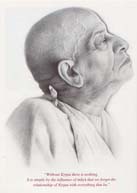
SRILA PRABHUPADA'S QUOTE OF THE DAY
25 June, 1972
Los Angeles
My Dear Aksoja,
Please accept my blessings. I am in due receipt of your letter from
Amsterdam dated June 21, 1972.
I look forward with pleasure to attending some of your meetings there
in Holland near end of July. Yes, the two engagements for July 28 and July
29 sound all right, and as you have kindly invited me, if you make all
nice arrangements, then I shall be very glad to attend them.
One thing, you have mentioned a band for playing in the park.* If we
hold public meetings, we can only hold kirtan, with our usual program of
preaching being the main feature of attention. We shall stick only to the
Vaisnava standard set for us by the great acaryas and saintly persons,
namely, the Hare Krishna Mantra and other mantras which I have taught to
you, but we shall not produce something artificial by writing and playing
our own songs as we like.
Also, as you have requested, I shall be very much pleased to install
Lord Jagannatha in the temple on the Sunday, 30th July, before continuing
onwards.
Hoping this will meet you in good health,
Your ever well wisher,
A.C. Bhaktivedanta Swami
Sign-up to receive these quote HERE:
mailto:haribol@pacific.net.sg

Bhaktivedanta Vedabase Network ...
http://vedabase.net/


The Scientific - Mathematical
Proof for God's existence:
http://geocities.com/sector114

http://robot-hosting.com/php/login_nicholas.html
user name = guest
password = guest
(Collection of philosophical and mathematical proofs
for existence of God can be found in this site.)

Scientifically Philosophical Books for the layman
 ...
... ...
...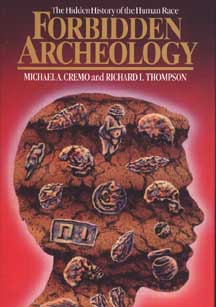 ...
...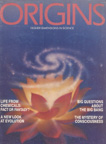
Click on any of these books to read more about them and where to get
a copy
or contact your local temple for purchases
sample of Life
comes from Life HERE.pdf

Lotus Imprints - Preserving Prabhupada's Legacy - The
Publishing House of Hari Sauri dasa
http://www.lotusimprints.com/

Quotes from Shastra - scriptures
View using Balaram font
 KAmikA
EkAdasii
KAmikA
EkAdasii
KAmikA EkAdasii - from BrahmA Vaivarta PurANa:
The saintly king Yudhisthira maharaj said, “Oh Supreme
Lord, I have heard from You the glories of fasting on Deva-sayani EkAdasii,
which occurs during the light fortnight of the month of AshADha. Now I
would like to hear from You the glories of the EkAdasii that occurs during
the dark fortnight (krishna paksha) of the month of ShrAvaNa (July –August).
Oh Govindadeva, please be merciful to me and explain its glories. Oh Supreme
VAsudeva, I offer my most humble obeisances unto You.”
The Supreme Lord, Shri Krishna, replied, “Oh King, please
listen attentively as I describe the auspicious influence of this Holy
fast (vrata) day, which removes all sins. Narada Muni once asked Lord BrahmA
about this same topic. ‘Oh regent of all beings,’ said NAradji, ‘Oh you
who sit upon a water born lotus throne, please tell me the names of the
EkAdasii that occurs during the dark fortnight of the sacred month of ShrAvaNa.
Please also tell me which Deity is to be worshipped on that Holy day, the
process one must follow to observe it, and the merit it awards.’
“Lord BrahmA replied, ‘My dear son Narada, for the benefit
of all humanity I shall happily tell you everything you wish to know, for
just hearing the glories of the KAmikA EkAdasii bestows merit equal to
that obtained by one who performs a horse sacrifice. Certainly, great merit
is attained by one who worships, and who also meditates on the lotus feet
of the four-armed Lord GadAdhara, who holds conchshell, disc, club and
lotus in His hands and who is also known
as Shridhara, Hari, Vishnu, Madhava, and MadhusUdana. And the blessings
achieved by such a person / devotee, who worships Lord Vishnu exclusively
are far greater than those achieved by one who takes a sacred bath in the
Ganges
at
KAshi (VarANasii), in the forest of NaimishAraNya, or at Pushkara, which
is the only place on the planet where I am formally worshipped. But one
who observes this KAmikA EkAdasii and also worships Lord Shri Krishna achieves
greater merit than one who has darshana of Lord KedAranAtha in the HimAlayas,
or one who bathes at Kurukshetra during a solar eclipse,
or one who donates the whole Earth in charity, including its forests and
oceans, or one who bathes in the GaNDaki River (where the sacred Shaligrams
are found) or the GodAvari River on a full moon (purnima) day that falls
on a Monday when Leo (Simha) and Jupiter (Guru) are conjoined (conjunct).
“ ’Observing KAmikA EkAdasii bestows the same merit as
donating a milk-cow and her auspicious calf, along with their feed. On
this all auspicious day, whosoever worships Lord Sri Shridhara-deva, Vishnu,
is glorified by all the devas, Gandharvas, Pannagas, and NAgas.
“ ‘Those who are afraid of their past sins and completely
immersed in sinful materialistic life should at least observe this best
of EkAdasiis according to their ability and thus attain liberation. This
EkAdasii is the purest of all days and the most powerful for removing sins
of the native. Oh Narada ji, Lord Shri Hari Himself once said about this
EkAdasii, “One who fasts on KAmikA EkAdasii attains much more merit than
one who studies all the spiritual literatures.”
“ ‘Anyone who fasts on this particular day remains awake
throughout the night will never experience the anger of YamarAja, the king
of death personified. It has been seen that whoever observes KAmikA EkAdasii
will not have to suffer future births, and in the past too, many Yogis
of devotion who fasted on this day went to the spiritual world. One should
therefore follow in their auspicious footsteps and strictly observe a fast
on this most auspicious of EkAdasiis.
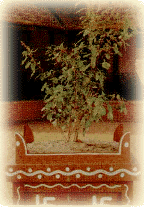
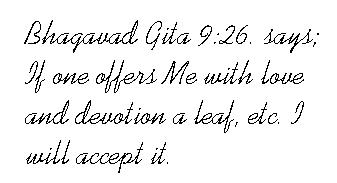
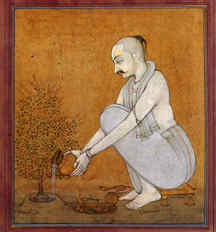
“ ‘Whosoever worships Lord Shri Hari with Tulasi
leaves is freed from all implication of sin. Indeed, he lives untouched
by sin, as the lotus leaf, although in the water, is untouched by it. Whosoever
offers Lord Shri Hari but a single leaf from the sacred Tulasi tree (occillium
basilcum sanctum) attains as much merit as one who gives away in charity
two hundred grams of gold and eight hundred grams of silver. The Supreme
Personality of Godhead is more pleased by one who offers Him a single Tulasi
leaf than by one who worships Him with pearls, rubies, topaz, diamonds,
lapis lazuli, sapphires, gomedA stones (gomaz), cat’s eye gems, and coral.
One who offers Lord Keshava newly grown maNjari buds from the Tulasi plant
gets rid of all the sins he has committed during this or any other lifetime.
Indeed, mere darshana of Tulasi on KAmikA EkAdasii removes all sins, and
merely touching her and praying to her removes all kinds of disease. One
who waters Tulasi devi need never fear the Lord of death, YamarAja. One
who plants or transplants Tulasi on this days will eventually reside with
Lord Shri Krishna in His own abode. To Srimati Tulasi devi, who awards
liberation in devotional service, one should therefore daily offer one’s
full obeisances.
“ ‘Even Chitragupta, YamarAja’s secretary, cannot calculate
the merit obtained by one who offers Shrimati Tulasi-devi a perpetually
burning ghee lamp. So dear is this sacred EkAdasii to the Supreme Personality
of Godhead that all the forefathers of one who offers a bright ghee lamp
to Lord Shri Krishna on this day ascend to the heavenly planets and drink
the celestial nectar there. Whoever offers a ghee or sesame oil lamp to
Shri Krishna on this day is freed from all his sins and enters the abode
of Surya, the Sun-god, with a body as bright as ten million lamps. This
EkAdasii is so powerful that if one who is unable to fast simply follows
the practices as mentioned herein, s/he is elevated to the heavenly planets,
along with all their forefathers.
“ ‘Oh Maharaj Yudhisthira,” Lord Shri Krishna concluded,
“…these were the words of prajapathi BrahmA to his son Narada Muni concerning
the incalculable glories of this KAmikA EkAdasii, which removes all sins.
This sacred day nullifies even the sin of killing a brAhmaNa or the sin
of killing an unborn child in the womb, and it promotes one to the spiritual
world by making one supremely meritorious.
 One who kills
the innocent, i.e., a brahmin (brAhmaNa), a child in the womb, a pious
and spotless woman, etc., and then later hears about the glories of KAmikA
EkAdasii will be relieved of the reaction to one’s sins. However, one should
NOT think beforehand that one can kill a Brahmin or other innocent folk
and then go unpunished simply by hearing of this EkAdasii. Such knowing
commission of sin is an abomination.
One who kills
the innocent, i.e., a brahmin (brAhmaNa), a child in the womb, a pious
and spotless woman, etc., and then later hears about the glories of KAmikA
EkAdasii will be relieved of the reaction to one’s sins. However, one should
NOT think beforehand that one can kill a Brahmin or other innocent folk
and then go unpunished simply by hearing of this EkAdasii. Such knowing
commission of sin is an abomination.
Whosoever hears these glories of the KAmikA EkAdasii with
faith becomes free of all sins and returns home, back to Godhead – Vishnu-loka,
Vaikuntha.
Thus ends the narration of the glories of the ShrAvaNa-kRshNa EkAdasii,
or KAmikA EkAdasii,
from the Brahma-Vaivarta PurANa.
These stories have been summarised and slightly changed or abbreviated
from how they are found in the celebrated book, "Ekadasi: The Day of Lord
Hari" 1986. HH Krishna Balaram Swami. Bhaktivedanta Institute Press, Pages
105-107.
 PAvitropAna
- PutradA EkAdasii
PAvitropAna
- PutradA EkAdasii
PAvitropAna or PutradA EkAdasii: from the
Bhavishya Purana.
Shri Yudhisthira Maharaja said, “Oh Madhusudana, Oh killer
of the Madhu demon, please be merciful to me and describe to me the EkAdasii
that occurs during the light fortnight of the month of Shravana (July-August).”
The Supreme Lord, Sri Krishna, replied, “Yes, Oh king, I shall happily
narrate its glories to you, for just by hearing about this sacred EkAdasii
one attains the merit of performing a horse sacrifice.
“At the dawn of DvArpara-yuga there lived a king by the
name of Mahijita, who ruled the kingdom of Mahismati-puri. Because
he had no son, his entire kingdom seemed utterly cheerless to him.
A married man who has no son gains no happiness in this life or the next.
The Sanskrit word for ‘son’ is putra. Pu is the
name of a particular hell, and tra means ‘to deliver.’ Thus the word
putra means ‘a person who delivers one from the hell named Pu.’ Therefore
every married man should produce at least one son and train him properly;
then the father will be delivered from a hellish condition of life.
But this injunction does not apply to the serious devotees of Lord Vishnu
or Krishna, for the Lord becomes their son, father, and mother.
Furthermore, ChANakya Pandita says,
satyam mata pita jnanam
dharmo bhrata daya sakha
santih patni ksama putrah
sadete mama
vandhavah
“The truth is my mother, knowledge is my father, my occupational
duty is my brother, kindness is my friend, tranquillity is my wife, and
forgiveness is my son. These six are my family members.” Among
the twenty-six leading qualities of a devotee of the Lord, forgiveness
is the topmost. Therefore devotees should make an extra endeavour
to develop this quality. Here ChANakya says “forgiveness is my son,”
and thus a devotee of the Lord, even though he may be on the path of renunciation,
may observe PutradA EkAdasii and pray to attain this kind of “son.”
For a long time this king tried very hard to obtain an
heir, but to no avail. Seeing his years advancing ever onwards, King
Mahijita became increasingly anxious. One day he told an assembly
of his advisers: ‘I have committed no sin in this life, and there
is no ill-gotten wealth in my treasury. I have never usurped the
offerings to the demigods or brahmanas. When I waged war and conquered
kingdoms, I followed the rules and regulations of the military art, and
I have protected my subjects as if they were my own children. I punished
even my own relatives if they broke the law, and if my enemy was gentle
and religious I welcomed him. Oh twice-born souls, although I am
a religious and faithful follower of the Vedik standards, still my home
is without a son. Kindly tell me the reason for this.’
“Hearing this, the king’s brahmana advisers discussed
the subject among themselves, and with the aim of benefiting the king they
visited the various ashrams of the great sages. At last they came
upon a sage who was austere, pure, and self-satisfied, and who was strictly
observing a vow of fasting. His senses were completely under control,
he had conquered his anger, and he was expert at performing his occupational
duty. Indeed, this great sage was expert in all the conclusions of
the Vedas, and he had extended his life span to that of Lord Brahma himself.
His name was Lomasa Rishi, and he knew part, present, and future.
After each kalpa passed, one hair would fall out of his body ( One kalpa,
or twelve hours of Lord Brahma, equals 4,320,000,000 years.) All the king’s
brahmana advisers very happily approached him one by one to offer their
humble respects.
“Captivated by this great soul, King Mahijita’s advisers
offered obeisances to him and said very respectfully, ‘Only because of
our great good fortune, Oh sage, have we been allowed to see you.’
“Lomasa Rishi saw them bowing down to him and replied,
‘Kindly let me know why you have come here. Why are you praising
me? I must do all I can to solve your problems, for sages like me
have only one interest: to help others. Do not doubt this.’
Lomasa Rishi had all good qualities because he was a devotee
of the Lord. As stated in the Srimad-Bhagavatam (5:18:12),
yasyasti bhaktir bhagavaty akinchana
sarvair gunais tatra samasate surah
harav abhaktasya kuto mahad-guna
manorathenasati dhavato bahih
“In one who has unflinching devotional service to Krishna,
all the good qualities of Krishna and the demigods are consistently manifest.
However, he who has no devotion to the Supreme Personality of Godhead has
no good qualifications because he is engaged by mental concoction in material
existence, which is the external feature of the Lord.”
“The king’s representatives said, ‘We have come to you,
Oh exalted sage, to ask for your help in solving a very serious problem.
Oh sage, you are like Lord Brahma. Indeed, there is no better sage
in the entire world. Our king, Mahijita, is without a son, though
he has sustained and protected us as if we were his sons. Seeing him so
unhappy on account of being sonless, we have become very sad, Oh sage,
and therefore we have entered the forest to perform severe austerities.
By our good fortune we happened upon you. Everyone’s desires and
activities become successful just by your darshana. Thus we humble
ask that you tell us how our kind king can obtain a son.’
“Hearing their sincere plea, Lomasa Rishi absorbed himself
in deep meditation for a moment and at once understood the king’s previous
life. Then he said, ‘Your ruler was a merchant in his past life,
and feeling his wealth insufficient, he committed sinful deeds. He
traveled to many villages to trade his goods. Once, at noon on the
day after the EkAdasii that comes during the light fortnight of the month
of Jyeshtha (Trivikrama – May-June), he became thirsty while traveling
from place to place. He came upon a beautiful pond on the outskirts
of a village, but just as he was about to drink at the pond a cow arrived
there with her new-born calf. These two creatures were also very
thirsty because of the heat, but when the cow and calf started to drink,
the merchant rudely shoved them aside and selfishly slaked his own thirst.
This offense against a cow and her calf has resulted in your king’s being
without a son now. But the good deeds he performed in his previous
life have given him rulership over an undisturbed kingdom.’
“Hearing this, the king’s advisers replied, ‘Oh renowned
rishi, we have heard that the Vedas say one can nullify the effects of
one’s past sins by acquiring merit. Be so kind as to give us some
instruction by which our king’s sins can be destroyed; please give him
your mercy so that a prince will take birth in his family.’
“Lomasa Rishi said, ‘There is an EkAdasii called PutradA,
which comes during the light fortnight of the month of Shravana.
On this day all of you, including your king, should fast and stay awake
all night, strictly following the rules and regulations. Then you
should give the king whatever merit you gain by this fast. If you
follow these instructions of mine, he will surely be blessed with a fine
son.’
“All the king’s advisers became very pleased to hear these
words from Lomasa Rishi, and they all offered him their grateful obeisances.
Then, their eyes bright with happiness, they returned home.
“When the month of Shravana arrived, the king’s advisers
remembered the advice of Lomasa Rishi, and under their direction all the
citizens of Mahismati-puri, as well as the king, fasted on EkAdasii.
And on the next day, DvAdasi, the citizens dutifully offered their accrued
merit to him. By the strength of all this merit, the queen became
pregnant and eventually gave birth to a most beautiful son.
“O Yudhisthira,” Lord Krishna concluded, “the EkAdasii
that comes during the light fortnight of the month of Shravana has thus
rightfully become famous as PutradA [“bestower of a son”]. Whoever
desires happiness in this world and the next should certainly fast from
all grains and legumes on this holy day. Indeed, whoever simply hears
the glories of PutradA EkAdasii becomes completely free of all sins, is
blessed with a good son, and surely ascends to heaven after death.”
Thus ends the narration of the glories of Shravana-sukla EkAdasii,
or PutradA EkAdasii, from the Bhavishya Purana.
These stories have been summarised and slightly changed or abbreviated
from how they are found in the celebrated book, "Ekadasi: The Day of Lord
Hari" 1986. HH Krishna Balaram Swami. Bhaktivedanta Institute Press, Pages
109-112.
Pavitropana Dwadasi
Pavitropanam the ritual
Yajur Veda Upakarmas
are done on Balaram Jayanti Purnima
Choose The Month (Vaishnava or Western), Paksha
or Ekadasi
Chaturmasya in Hari Bhakti Vilas
ITY ASASYA PRABHOR AGRE GRAHANIYAN NIYAMAM VRATI
CATURMASESU KARTAVYAM KRSNA BHAKTI VIVRDDHAYE
(HARI BHAKTI VILASA 15/113 from NAVA-PRASNA PANCARATRA)
After properly praying to the Supreme Lord near Him, one should
properly take a vow to follow the proper rules and regulations and process
of Caturmasya to increase one's devotion to Lord Sri Krsna.
EKA DASYANTU GRAHANIYAT SANKRANTAU KARKATASYA TU
ASADHYAM VA NARO BHAKTYA CATUR-MASYO DITAM VRATAM
(HARI BHAKTI VILASA 15/114, Sanat Kumara speaks)
In the month of Asadha, either on the Ekadasi when the Lord sleeps
or in Cancer Sankranti day or a full moon day, it is the duty of a fasting
person to take a vow to fast in Caturmasya with devotion, in front of the
Lord.
YO VINA NIYAMAM MARTYO VRATAM VA JAPYAM EVA VA
CATURMASYAM NAYEN MURKHO JIVANN API MRTO HI SAH
(HARI BHAKTI VILASA 15/116 from BHAVISYA PURANA)
Any person in this material world who performs Caturmasya without
following any rules and regulations, or fasts, or without chanting any
japa, such a foolish person is considered to be dead, even though alive.
SRAVANE VARJAYET SAKAM DADHI BHADRA PADE TATHA
DUGDHAM ASVAYUJE MASI KARTIKE CA AMISAM TYAJET
(HARI BHAKTI VILASA 15/117 from SKANDA PURANA, NAGARA KHANDA)
(While following Caturmasya) one should give up eating leafy vegetables
in the month of Sravana (July-August). In the month of Bhadrapada (August-September),
one should give up yogurt. In the month of Asvina (September-October) one
should give up milk and in the month of Karttika (October-November), one
should give up eating white dahl.
The Chaturmasya Vrata from Haribhakti Vilasa
15th vilasa
Chaturmasya Benefits
Bhavisya Purana- "One who passes the Chaturmasya
season without observing religious vows, austerities and chanting of japa,
such a fool although living should be considered to be a dead man."
Kanda Purana, Nagava Khunda- "In the month of shravana
(July, August) one should refrain from eating spinach. In the month
of Bhadra (August, September) of yogert in Ashvina (September, October)
milk. In Kartik (October, November) meat and urd dall.
Various vows and austerities during Chaturmasya and Their
respective results.
"O King, one who is My devotee and is fixed in vow, whether
man or woman, for the purpose of Dharma, should accept these various austerities
and observances. I shall now describe to you all of them along with their
respective results.
1) No salt—One's voice becomes sweet.
2) No oil—One's life is prolonged and gets progeny.
3) No oil massages—One's body becomes beautiful.
4) No cooking with oil—One's enemies are vanished.
5) No licorice and oil—One becomes wealthy.
6) Give up wearing unoffered flowers—One becomes a Vidyadhara
in Devapura.
7) Give up six kinds of tastes (spice, sour, bitter,
sweet, salty and harsh)—One never becomes ugly, smelly, or obtains a bad
birth.
8) Practice of yoga—One goes to Brahmaloka.
9) No betal nuts—One becomes happy.
10) No cooked food (raw fruits & Vegetables)—One
obtains purity.
11) No honey—One becomes lustrous.
12) No yogert or milk—One attains Goloka.
13) No cooking with earthen pots—One gets ... (?)
14) No hot food—One gets offspring with a long life.
15) Take rest on the ground or on stone—One becomes an
associate of Vishnu.
16) One who gives up meat & honey is a yogi and muni.
17) No intoxicating liquors—One becomes powerful and
free from disease.
18) Fast for one day—One is honored in Brahmaloka.
19) No cutting of hair and nails—One gets the benefit
of taking bath daily in Ganges.
20) No speaking of grama katha (nonsense)—One's order
will never be disobeyed.
21) Eat food on the ground without dish or plate—One
obtains a kingdom on Earth.
22) Chant the mantra Namo Narayana—One obtains the result
of giving in charity 100 times.
23) Offer prayers to the Lord—One gets the result of
giving cows in charity.
24) Touch the lotus feet of the Deity—One becomes a successful
person.
25) Clean the temple of the Lord—If one is king he remains
so for a Kalpa.
26) Circumambulating the temple three times offering
prayers—At the time of death one will mount a swan airplane and go to Vaikuntha.
27) Singing or playing musical instruments in the temple
of the Lord—One goes to Gardharvaloka.
28) Take pleasure in studying the sastras—One goes to
Vishnuloka.
29) Sprinkle water in the temple—One goes to apsaraloka.
30) Take bath in a holy place—One's body becomes pure.
31) Worship Lord Vishnu with flowers—One goes to Vaikuntha.
32) Eat panchagavya—One gets the result of observing
candrayana fasting.
33) Eat one meal a day—One gets the results of performing
an Agnihotra.
34) Eat at night only—One gets the result of going to
all the places of pilgrimage.
35) Eat at noon only—One attains Devaloka.
36) Take food not obtained by begging or any extraneous
endeavor—One gets the results of opening water stands and digging wells.
37) Take bath daily—One will never see hell.
38) No eating on a plate—One gets the result of bathing
at Pushkara
39) Eat on a leaf—One obtains the result of living at
Kurukshetra.
40) Eat on a stone—One obtains the result of bathing
at Prayog.
41) Giving up drinking to six hours—One will not be attacked
by diseases.
42) During the Chaturmasya, garlands, caranamrta, candana
and water from the conshell of the Lord, mahaprasädam, Deity garlands
must be accepted.
In this way one who performs this vrata for the satisfaction
of Lord Kesava becomes satisfied himself. O best of the Pandavas, among
My devotees, he who accepts these vows and austerities during the Chaturmasya
goes to my abode at the time of death, of this there is no doubt.
Vishnu Rahasya- Lord Brahma to Narada Muni.
If one accepts all these Vaisnava austerities and
observances with devotion, one attains the supreme destination O Narada.
One who desires within himself to execute all these Vaisnava austerities
and vows, his sins obtained within one hundred births is destroyed. If
one is exclusively devoted, peaceful, takes daily bath, is fixed in vow
and worships the Lord during these four months, he goes to the abode of
the Lord. He who accepts the austerity of sleeping on the ground this time
when the Vishnu Deity is sleeping in yoga nidra underwater, he goes to
the abode of Laxmi.
Read more about vrata, sankalpa and Chaturmasya in general
HERE
Chaturmasya-info-Madhwas.html
Chaturmasya-vrata.html
Courtesy of http://www.vedabase.com/
used
with permission









![]()
![]()
![]()
![]()
![]()

![]()
![]()
![]()
![]()

![]()
![]()
![]()
![]()















 KAmikA
EkAdasii
KAmikA
EkAdasii

